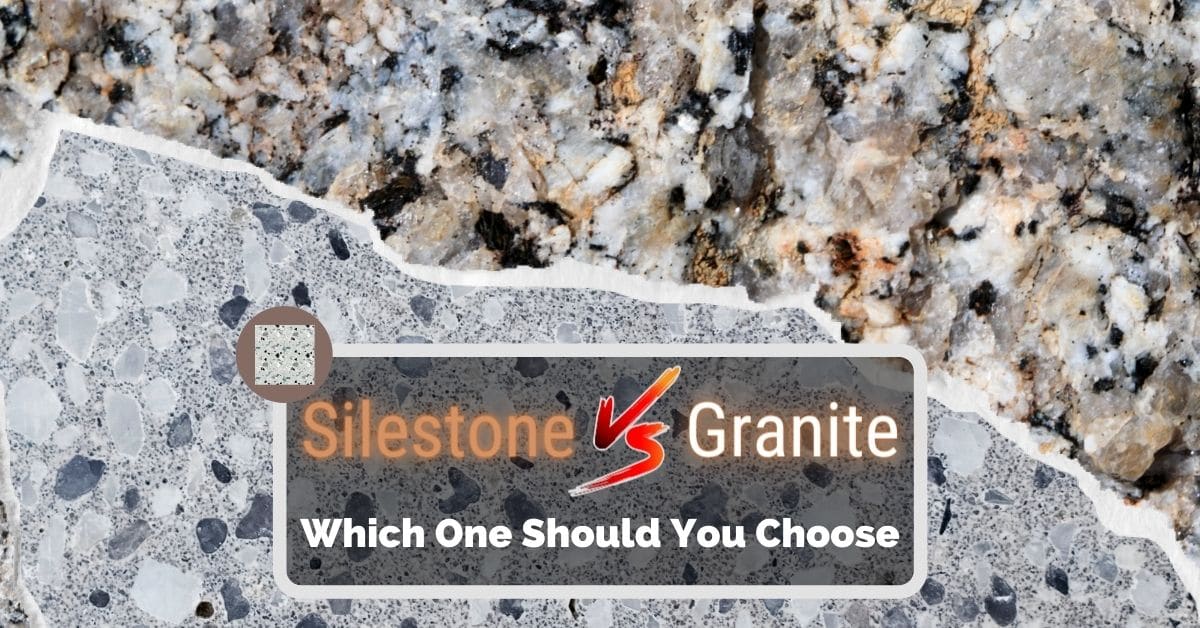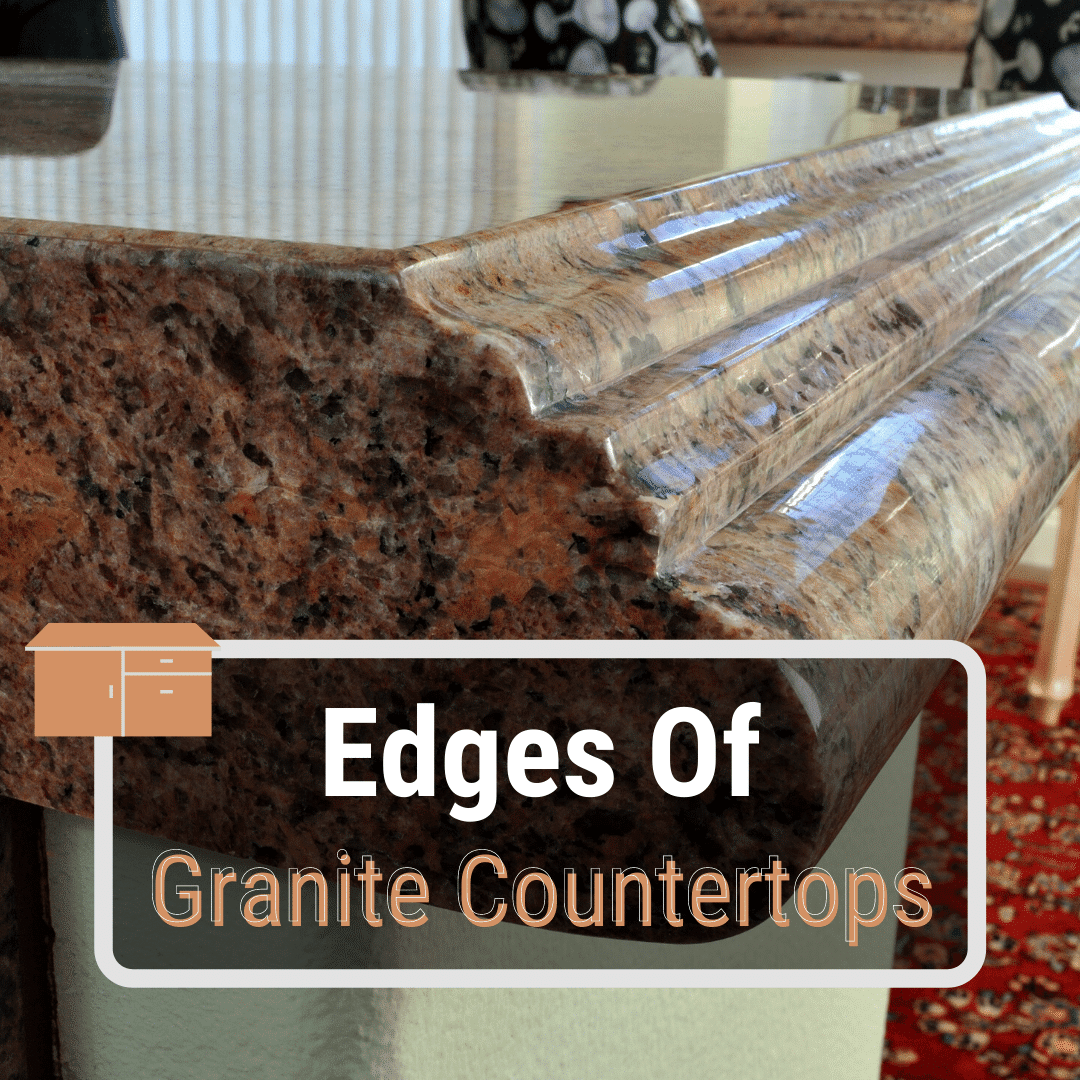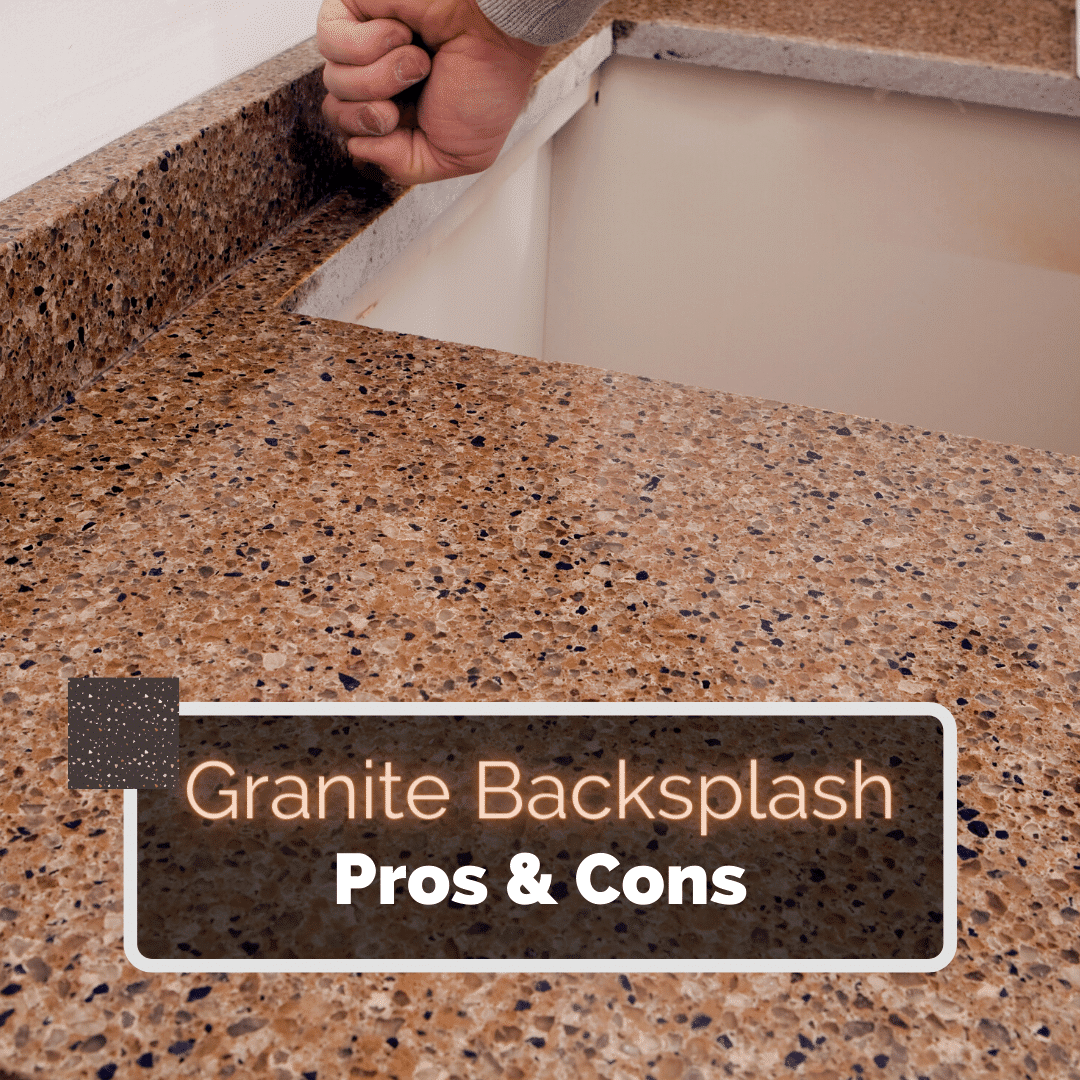Remodeling your kitchen and bathroom aren’t activities you do every day: hence the need for the Silestone vs Granite countertop debate. You'll need a counter that’ll last you a long time, give your kitchen an appealing ambience, and won’t be difficult to maintain.
While there’s no right or wrong choice for your desired countertop material, this extensive comparison will show you all you need to know to make an informed decision when installing a new countertop.
What is Silestone?
Silestone is a mixture of quartz stone and other hard and resilient materials. And the combined features confer desirable characteristics that make it ideal for kitchen countertops, wall siding, and bathrooms.
So what are the differences between Silestone and quartz? None. The Silestone is pretty much the same as other quartz countertops. Actually, it's the most popular of several quartz brands. And this particular quartz brand is manufactured by Consentino in Spain.
So this leads us to what are the differences between Silestone and granite?
Key Differences between Granite and Quartz Countertops
Silestone and Granite countertops are manufactured differently
The Silestone quartz is an engineered stone made from 90% natural quartz and 10% pigments and polyresins (this binds all the components together).
Granite, on the other hand, is a 100% natural stone gotten from igneous rock. The quarried blocks are then cut into slabs that are forged into your granite counters for your bathroom, kitchen, and floor.
Appearance
Both the Silestone and granite give your home an aesthetic ambiance.
Even though granite counters are made of natural stone, it offers a variety of color options, unique patterns, and attention-grabbing features you can choose from. Albeit, it's got a uniform color: for many homeowners, it’s a fine attribute, for others, not so much.
Silestone, being an engineered stone, also presents you with many different color options. And this makes it possible to customize quartz counters into almost any and every pattern and texture of your choice. It can even be made to look as beautiful as a natural stone, giving you an even wider range of selection.
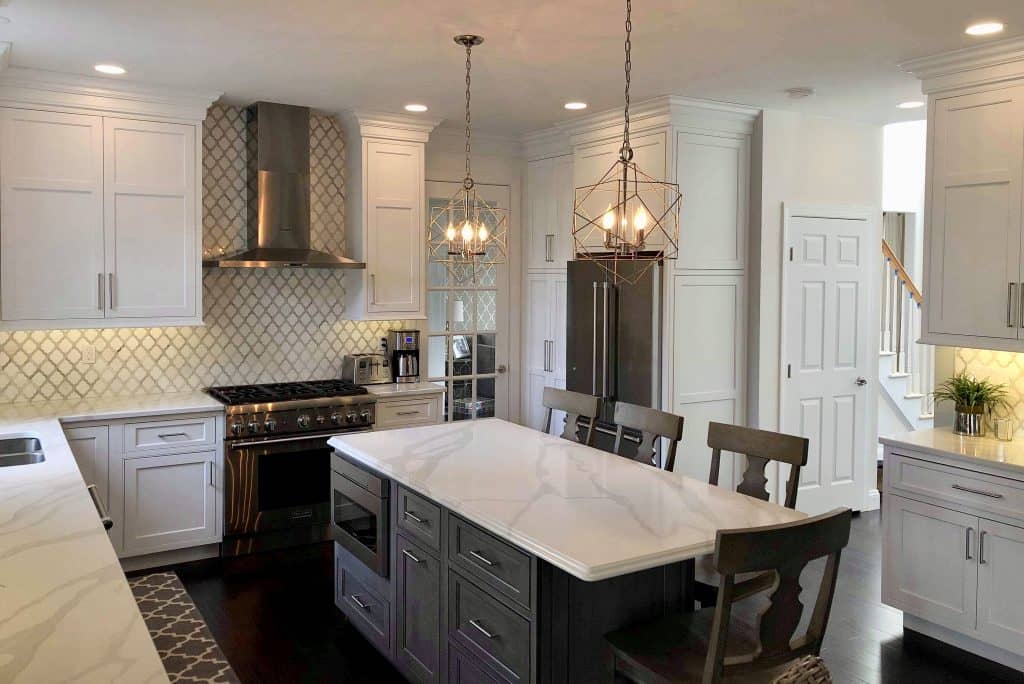
Maintenance
If you're looking for a countertop that's easy to clean and doesn't need to be sealed, then the Silestone is probably right for you.
Because they're engineered, Silestone countertop surfaces are non-porous. This means they won't absorb liquid and won’t allow for the buildup of bacteria. So you don’t have to seal it. Ever.
Interestingly, the resins in quartz countertops contain antibacterial and antiviral agents. And when there are stains, you've only got to clean it with soapy water and cloth, quickly. This way, it could last a lifetime.
Granite is porous. And porous countertops need to be sealed because they’ve got tiny cracks and pores that collect liquid. These can be breeding grounds for bacteria, and you don’t want safety hazards arising in your kitchen or bathroom.
However, you can seal once it a year. And don’t forget to disinfect with isopropyl alcohol, regularly..
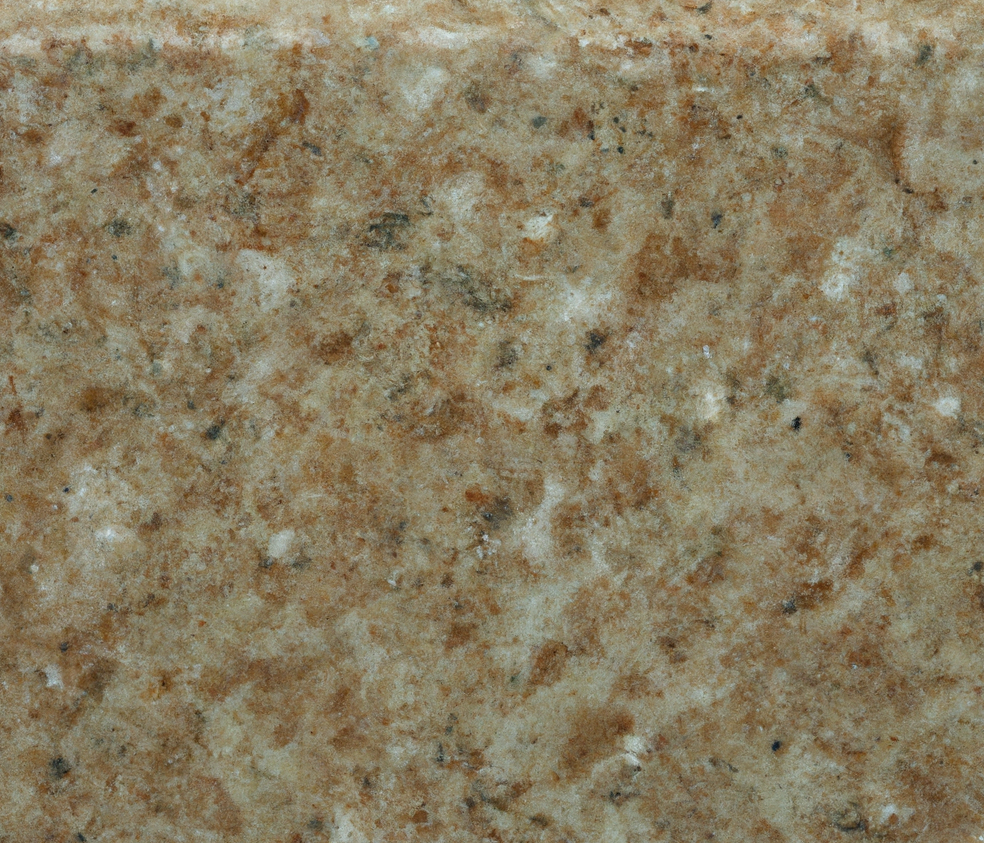
The quartz can’t withstand excess heat
If there’s one ultimate downside to having a quartz counter, it's that the countertop’s surface burns or chars when hot objects (like hot pans or pots) are placed on them. And if hot coffee mugs sit on them for a long time, that could also have an adverse effect.
The thing is, quartz stone can withstand high temperatures up to 300 degrees. But the man-made resins used in manufacturing the countertop can’t.
But for granite, the case is different. Since it’s a natural stone and was forged in heat, the countertop can withstand hot temperatures. So you can put your hot pots on it and be rest assured nothing will happen.
Durability
Durability is one fine characteristic homeowners look out for when buying a countertop. And for the Silestone vs granite countertops debate, it’s a hot topic.
How durable is the Silestone counter? Very durable. It’s got a hardness index of 7 on a scale of 1 – 10 (with diamond being a 10). It’s stain-resistant, scratch-resistant (to some extent), but not heat resistant.
But so long as you keep hot objects away from it and try not to use it as a cutting board or drag hard objects on its surface, it'll last for a real long time.
The granite countertop is cut out of igneous rock which means it's hard as a rock. So it’s super durable. As a matter of fact, it can damage your knife when you use it on its surface. But that doesn’t mean you should cut directly on it.
And despite its strength and resilience, it could break or chip when heavy objects fall on it. So take precautions when using it.
Overall, because of the Silestone's flexibility, it’s much stronger.
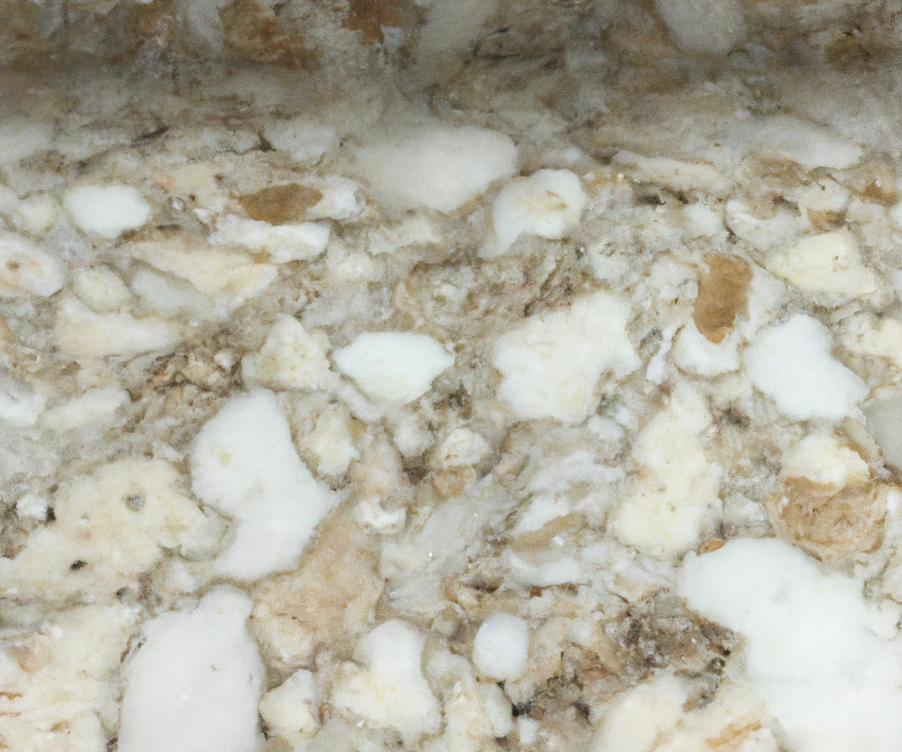
Installation
There’s not much difference between the Silestone countertop and granite when it comes to how they’re installed.
For both, you'll need the help of a professional. This will minimize the risk of damaging them or having your granite counter chip during the installation process.
Environmental Impact
Ever since climate change became a hot-button topic, people have always sought products that did less harm to the environment.
In the Silestone vs granite ecological debate, Silestone wins, as it produces a lesser carbon footprint than granite. Granite is first excavated and then shipped to various manufacturing facilities, making it less eco-friendly.
Cost and Resale Value
The entry price for granite is $40 per square foot while that of Silestone is $70. This makes Silestone countertops more expensive. However, some exotic granite brands cost just as much as a quartz countertop.
The price of quartz mostly depends on your selection (colors, design, and brand) and the size of your kitchen. But that’s not the end of the battle.
For the resale value, granite has an edge because it’s a natural stone, and people tend to prefer the feel of owning a natural stone.
Granite is easier to repair, and Silestone has a low UV resistance
When Silestone is damaged, you’ll need the help of a professional to fix it because of the complicated nature of the countertop material.
But granite countertop care and improvement kits can be found at almost every home improvement store. And you can fix the chip with epoxy by yourself, and it’ll look good as new.
When you compare granite vs Silestone regarding UV resistance, Silestone does poorly. Direct exposure to sunlight fades the resins used to give the quartz countertop material vibrant colors: thereby discoloring it or making it char.
The air quality of your home
Everyone wants to live in a safe and pollution-free space. So for the granite vs Silestone countertop materials debate, some granite may contain radon in extremely low levels.
While the Silestone countertop materials like resins and acrylic may contain some volatile organic compounds (VOCs) than granite.
Despite these, both counters are safe for your home.
Granite vs Silestone conclusion
So there you have it, homeowners: Silestone vs granite countertops explained in detail.
Both possess unique features and are worth having at home.
I'd love to choose for you, but it’s up to you to take this piece of information and choose the one that suits your needs, personality, budget, and quality.

